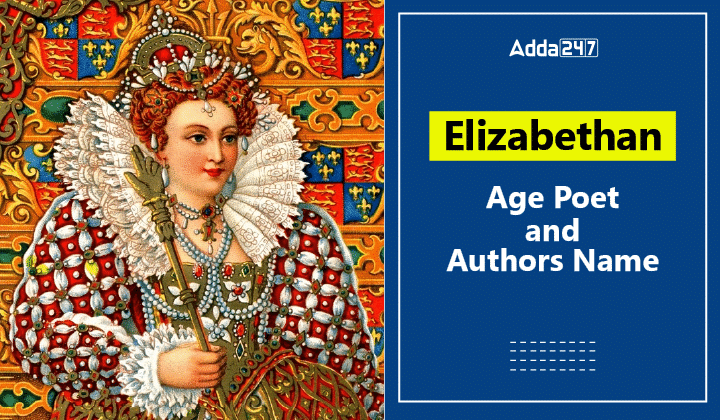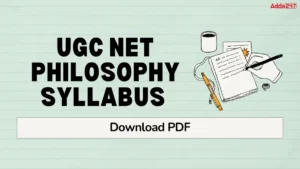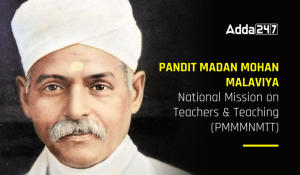Table of Contents
British literature is generally divided into various ages, periods based on political developments, identifiable names, and major trends of the time. One such age that produced one of the most popular authors of all time, Shakespeare, is the Elizabethan Age.
The period coincides with the reign of England’s Queen Elizabeth I (1550-1630). It is considered to be the literary height of the English Renaissance. It produced plenty of great poets and authors. Thus, it becomes extremely important to learn about these poets and authors along with their major works. So, let’s jump in.
Poets of the Elizabethan Age
Poets took inspiration from Italian forms and genres such as the love sonnet, the pastoral, and the allegorical epic in the Elizabethan Age. In the following section read about the most important and noteworthy poets such as Edmund Spenser and John Donne along with other poets of the Elizabethan Age.
Edmund Spenser (1552-99) – He was a giant figure when it came to the poetry of the Elizabethan Age. Taking notes from the classical writers, especially Virgil, he wrote pastoral poetry and later explored political discourses, among other topics. His style was unique and inspired plenty. Two of his most famous works include his first major work called “The Shepheards Calendar” (1579), and his Second is “The Faerie Queene” (1596).
John Donne (1573-1631) – Along with Spenser, John Donne innovated and showcased his style of poetry which was different from the rest. He was the most independent of all Elizabethan poets. He revolted against the easy, fluent style, stock imagery, and pastoral conventions of the followers of Spenser. He relied heavily on the reality of thought and vividness of expression.
Dryden said, “He affects the metaphysics,” and the term Metaphysical has come to be applied to Donne ever since. His poems are all personal, forceful, and vigorous. Some of his major works include “The Good Morrow” (1633), “Of the Progres of the Soule” (1601), “Songs and Sonets”, “Aire and Angles”, “A Nocturnall upon S. Lucies Day”, “To His Coy Mistress” (1681), “A Valediction: Forbidding Mourning”, “Holy Sonnets” and many more.
Sir Thomas Wyatt (1503-1542) – He is attributed to one important work that appeared after his death. “Tottel’s Miscellany”, which appeared in 1557. Of the bunch, the most noteworthy are thirty-one sonnets, the first in English. Ten of them were translations of Petrarch. All were written in Petrarchan form, apart from the couplet ending, which Wyatt introduced.
Henry Howard, Earl of Surrey (1516-1547) – Like Wyatt, his works were published posthumously. These were chiefly sonnets, the first of their kind, composed in English or Shakespearian mode, an arrangement of three quatrains followed by a couplet. His most famous work appeared in 1557, called “Certain Bolea of Virgil’s Aeneis” turned into English Meter.
Thomas Sackville (1536-1608) – Two poems that are of merit, “The Induction” and “The Complaint of Henry Duke of Buckingham”, appeared in a miscellany called “Myrroure for Magistrates” (1563). He also collaborated with Norton in the early tragedy of Gorboduc.
George Gascoigne (1525-1577) – He composed one of the first regular satires in the language, “The Steele Glass” published in 1576. It was written in blank verse. His other noteworthy works include “Jocasta” (1566) and “Supposes” (1566), which was the basis of Shakespeare’s “Taming of the Shrew.”
Sir Philip Sidney (1554-86) – His finest achievement is the “Astrophel”, a connected sequence of 108 love sonnets that owes much to Petrarch and Ronsard. It was written to his mistress, Lady Penelope Rich. Another noteworthy work is his pastoral romance, the “Arcadia”, published incompletely in 1590 and completed in 1598. His most famous work is the “Apologie for Poetrie”, published in 1595 and is among the great critical essays in English.
Thomas Campion (1567- 1620) – His best-known collection of songs includes “A Booke of Ayres” (1601), “Songs of Mourning” (1613), and “Two Bookes of Ayres” (1612).
Phineas Fletcher (1582-1650) – His most famous poems are “The Purple Island” or “The Isle of Man” (1633). It is a fascinating work of twelve cantos describing the human body in an allegorical-descriptive fashion.
Giles Fletcher (1588-1623) – Giles’s best-known work is “Christ’s Victorie and Triumph” (1610). It is an epic poem of four cantos. It is said partly to have inspired Milton’s Paradise Regained.
Samuel Daniel (1562-1619) – His poems include a sonnet series called “Delia” (1592), a romance called “The Complaynt of Rosamond” (1592), some long historical poems, such as “The Civil War” (1595), and a large number of masques, of which “The Queenes Wake” (1610) and “Hymen’s Triumph” (1615) are the most important. His best work appears in his sonnets, which, composed in the English manner, carry on the great tradition of Sidney, Spenser, and Shakespeare, “His Defence of Ryme” (1602) is a fine piece of English criticism.
Authors and Dramatists of the Elizabethan Age
The Elizabethan Age was known for its tremendous dramatic output compared to its previous period. You will find the world’s greatest dramatist and most famous author of all time active during this period, William Shakespeare. However, before he took center stage, there was a group of amazing writers who also inspired the great bard, Shakespeare himself.
William Shakespeare (1564-1616) – The single most famous author dwarfing every other writer of the Elizabethan Age and anyone who ever picked up the pen. He wrote long narrative poems like “Venus and Adonis” (1593) and “The Rape of Lucrece” (1594). His collection of Sonnets dedicated to Mr. W. H. also showcases his handling of rhyme and meter. However, it is in writing tragedies that Shakespeare finds greatness. Some of the examples include “King Lear”, “Macbeth”, and “Hamlet”.
| Shakespeare & His Work | |
| Dates of Play | Works |
| 1591-1592 |
|
| 1593 |
|
| 1594 |
|
| 1595 |
|
| 1596 |
|
| 1597 |
|
| 1598 |
|
| 1599 |
|
| 1600 |
|
| 1601 |
|
| 1602 |
|
| 1604 |
|
| 1605 |
|
| 1606 |
|
| 1607 |
|
| 1608 |
|
| 1609 |
|
| 1610 |
|
| 1611 |
|
| 1613 |
|
University Wits – These are a group of educated young men who wrote dramas before Shakespeare. There were 6 in total, and nearly all of whom were associated with Oxford and Cambridge. They mostly wrote tragedies. Only John Lyly is a representative of real comedies. One name associated with University Wits is Thomas Kyd, whose connections are obscure. He was not university-trained either. These authors and some of the major works are the following.
| University Wits & Their Work | |
| Author name | Their works |
| John Lyly |
|
| George Peele |
|
| Robert Greene |
|
| Thomas Nash |
|
| Thomas Lodge |
|
| Thomas Kyd |
|
| Christopher Marlowe |
|
Ben Jonson (1573-1637) – In the Post-Shakespearian period, Ben Jonson was the most prominent name. Some of his major works include Every Man in his Humor (1598), Every Man out of his Humor (1599), Cyntyhia’s Revels (1600), and The Poetaster (1601), Volpone, or the Fox (1605), The Alchemist (1610) and Bartholomew Fayre (1614).
Download UGC NET English Study Note PDF
To Download the UGC NET English Study Note PDF, candidates must click on the following link. It is beneficial for the candidates to download and save the UGC NET English Study Note PDF to easily refer to it during preparation and revision
Download Elizabethan Age Poet & Authors Name Study Notes PDF




 UGC NET Philosophy Syllabus 2025 PDF Dow...
UGC NET Philosophy Syllabus 2025 PDF Dow...
 UGC NET Commerce Syllabus 2025 PDF Downl...
UGC NET Commerce Syllabus 2025 PDF Downl...
 PMMMNMTT for NEP 2020, Check details Her...
PMMMNMTT for NEP 2020, Check details Her...














